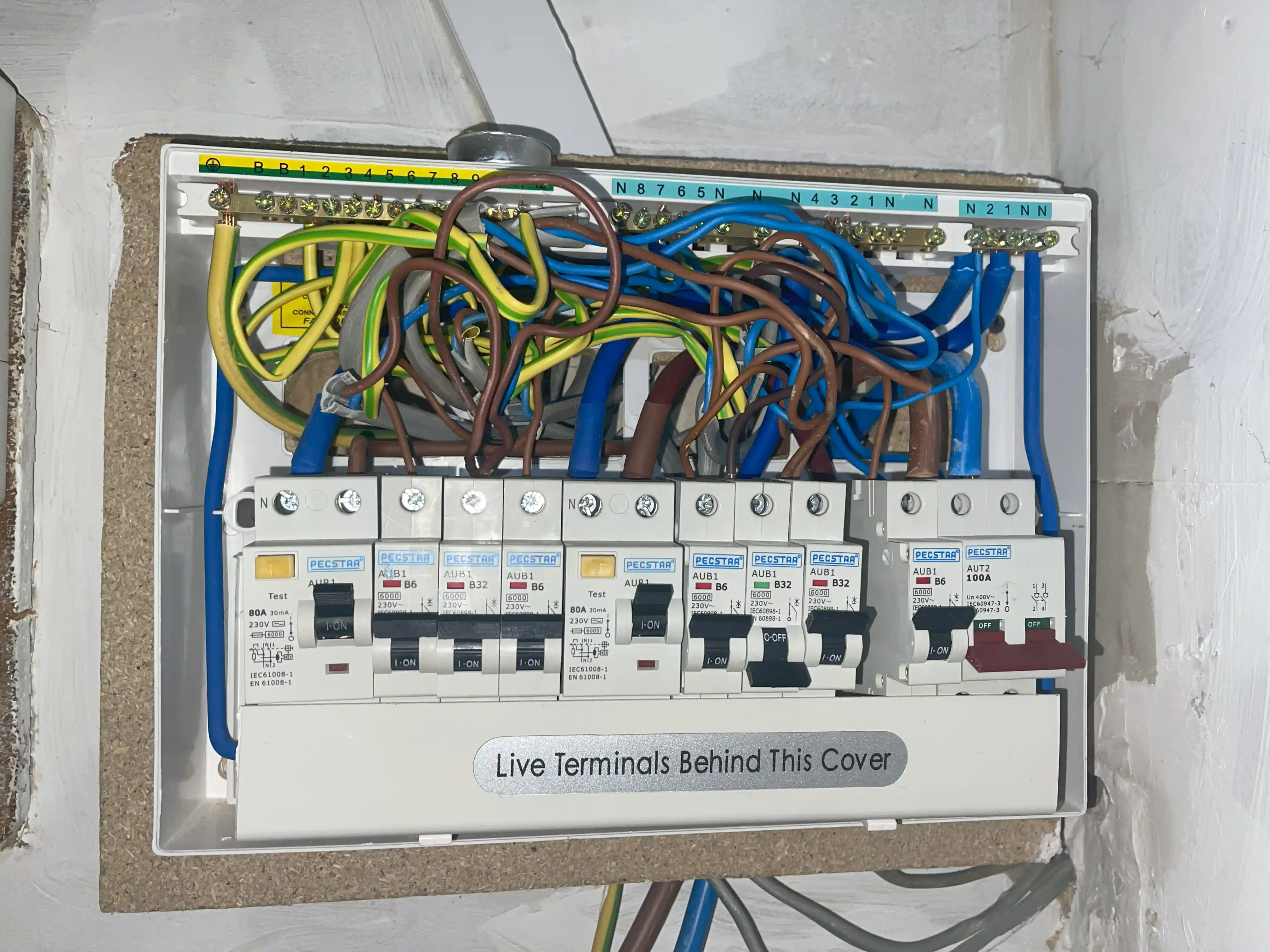Open 24 hours a day, 7 days a week, 365 days a year. We reach you within 30 minutes of your initial contact with our team. Our expert commercial and domestic engineers are fully qualified by City & Guilds to solve emergency problems.
Call Now 02034881842
£30 call-out fee
Competitive Call out fee

Quick response
We can dispatch Our engineer fast to your property within time of 30-90 minutes of your call, and we are available 24/7 365 days.

Payment upon completion of work
We never request payment upfront. With our service, you only pay when you're completely satisfied.

Certified
Our electricians come highly recommended by numerous satisfied customers. Additionally, we hold certifications from esteemed industry trade bodies.
Reach out to us
Choose a suitable appointment
Our engineer is on the way to resolve the issue

We are offering 24-hour a day chat support on the web. Please click the button below to chat with one of our representatives.
Click to Chat With Us
We are offering a 10% discount for the volunteers and workers of the following organizations:
Power Cut
Panel Repair
Fuse Box is Tripping
Power Restoration
Socket and Switch Relocation or Repair
Burglar alarm
Carbon monoxide alarms
Fire alarm
Door entry system
Electric boiler
Underfloor heating
Night storage heaters
Radiator
Heating
Air conditioning
Hot water boiler
Power shower
Storage heater and hot water immersion heater
Hot water cylinder
Immersion heater
Smart thermostats
Hot tub wiring services
Automated gates
Electric shower
Rewiring
3-phase electrics
Car charger
Consumer unit replacement
Fuse box upgrade
In case of electrical problems, call an emergency electrician for fast response to your emergency call, ensuring safety regulations and NICEIC approved quality for a range of electrical services including electrical installations, fault finding, and handling electrical faults such as power outages, electrical fires, or issues with heating electrics; our emergency services cover both domestic and commercial properties, with our emergency plumber ready to assist and guarantee customer satisfaction in home services—company number provided for all your electrical system needs. In the event of an electrical emergency, our emergency electricians are ready to handle all electrical emergencies, whether it's a power outage, electrical fire, or issues with your fuse box or consumer unit. We offer competitive rates for all electrical work, ensuring excellent electrical safety and installation condition for both domestic electrical and commercial electrical needs. As an approved contractor, we pride ourselves on top-tier customer service and reliability.
We provide and handle emergency electrician services as company Grip Electric Limited in Area.
In electrical emergencies, our professional emergency electricians provide top-notch emergency electrical services. Whether it's an electrical emergency with a consumer unit, electrical work, or other electrical issues, our emergency services are designed to handle all types of electrical emergencies efficiently.
£63 per 15 minutes**
Signs that you need to call the electricity supplier rather than an Grip Electric Limited
If
1. All of your switches are up and not tripped in the Fusebox or consumer unit.
2. Check your meter as well that it's topped up,
3. Then, you will need to call an electricity supplier rather than an emergency electrician. Here is a comprehensive list of electricity suppliers and their contact details that we have prepared for you
British Gas, E.ON, EDF Energy, npower, Scottish Power, SSE, SSE Southern Electric, Bulb
Please dial 105 for nationwide electricity supplies UK power network and press 2 for power cuts. If they suggest that you need an emergency electrician, then give us a call or chat with the support team. An emergency electrician will be arranged within 30 minutes. If you are in an area that is not covered, search online for an emergency electrician near me, and you will be able to find someone very close to you.

At Grip Electric Limited, we understand that electrical emergencies can strike at any moment, leaving you in a state of panic and discomfort. Thats why we are here to provide swift and reliable emergency electrician services to ensure your peace of mind. Our team of skilled professionals is committed to resolving your electrical issues promptly and efficiently.
In an electrical emergency, timing is critical. Our emergency electricians are accessible 24/7 to answer your call. Electrical issues may be dangerous; therefore, we emphasize fast response to protect you.
Emergency electrical repair is our specialty. Our professionals can quickly identify and rectify any electrical issue, including power outages and defective circuits. We have the newest equipment and technologies to restore your electrical system quickly.
Expertise: Our highly trained and qualified electricians can manage a variety of electrical problems.
Affordable electrical repair services
We provide affordable prices so you may receive the support you need without breaking the bank.
Safety First
Protecting you is our top concern. We follow strong safety measures to guarantee every repair is done carefully.
When it comes to emergency electrician services and emergency electrical repair, Grip Electric Limited is the name you can trust. Our utmost dedication is in ensuring your safety and contentment.
Terms and conditions
15 minutes service charge applies first hour and all prices are excluding VAT materials